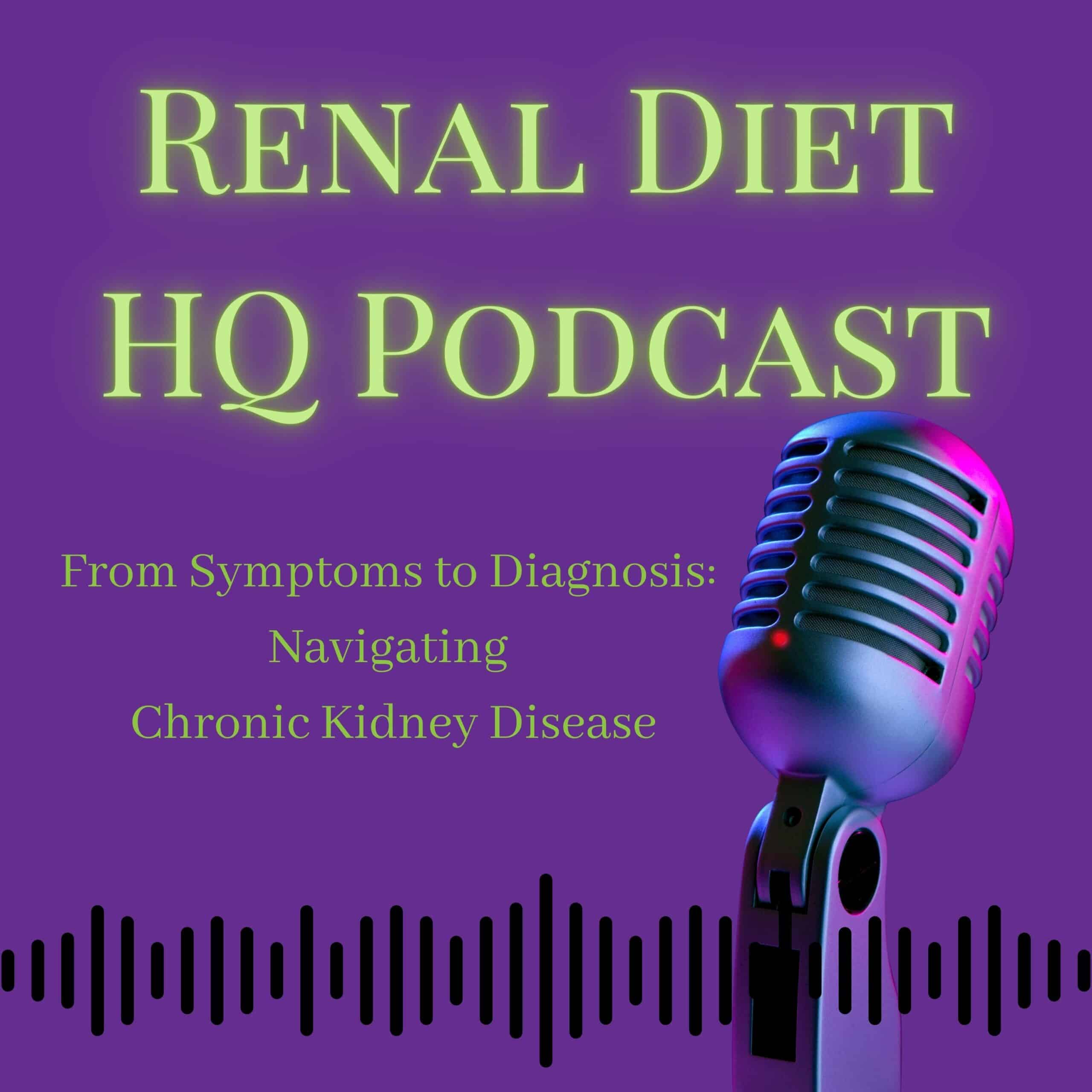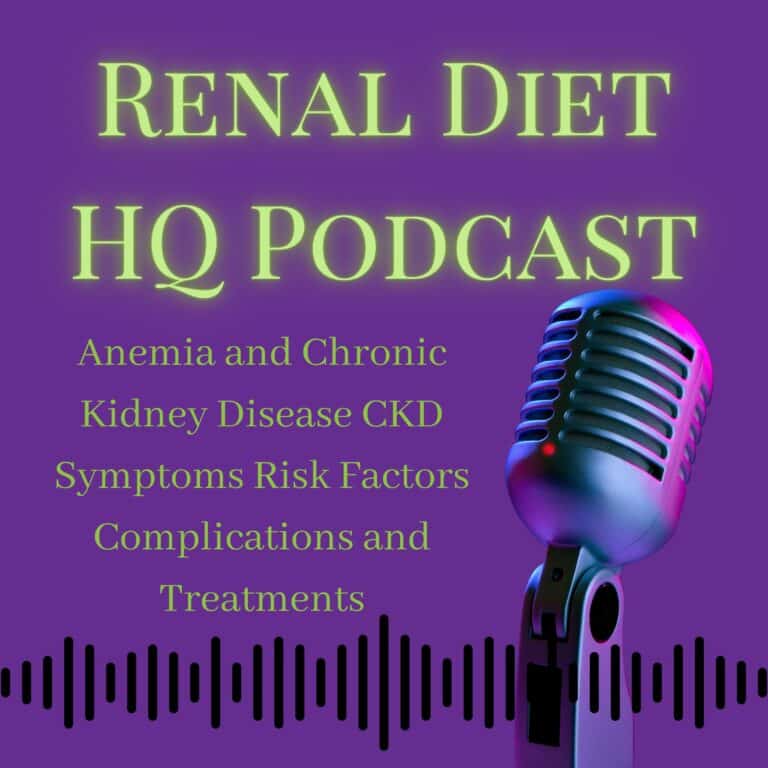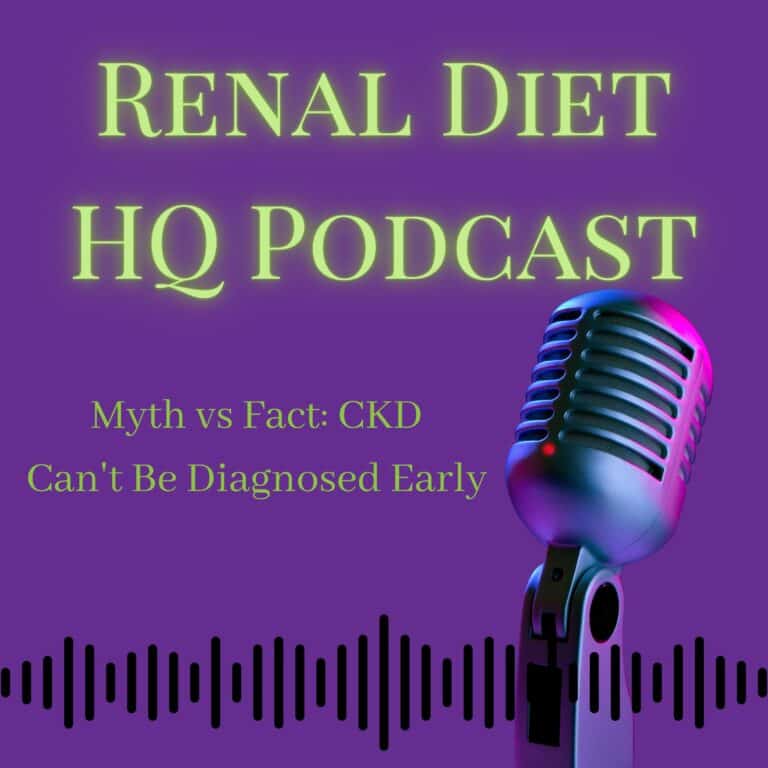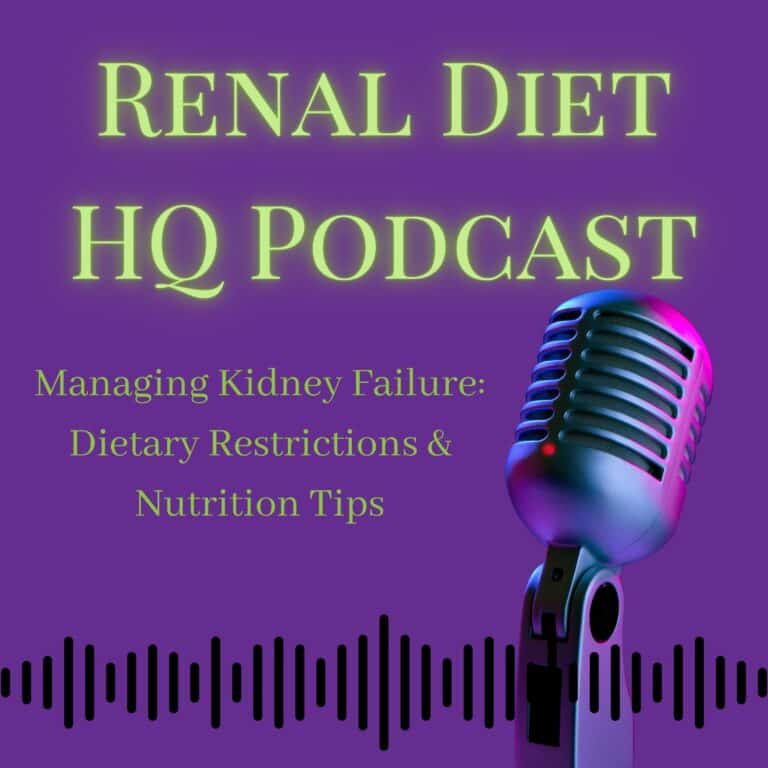From Symptoms to Diagnosis: Navigating Chronic Kidney Disease-Podcast
Podcast: Play in new window | Download

Chronic Kidney Disease (CKD) is a prevalent health condition affecting millions of people worldwide. Despite its common occurrence, many individuals may not be aware of the signs and symptoms until the disease has progressed significantly. In this comprehensive guide, we'll delve into the essential aspects of CKD diagnosis and management, shedding light on key tests, lifestyle factors, and treatment strategies. By understanding CKD better, individuals can take proactive steps towards better kidney health and overall well-being.
For More Recipes and Ideas --->> Get Your Free Meals and Recipes That Are Perfect for Pre-Dialysis Diets, Pre-Dialysis with Diabetes, or Dialysis Diets.
Key Tests for Diagnosing CKD
Diagnosing CKD involves a series of crucial tests aimed at evaluating kidney function and identifying any abnormalities. Among the primary tests used are measurements of albumin and creatinine levels, which provide valuable insights into kidney health. Additionally, ultrasounds and biopsies may be conducted for further examination, helping healthcare providers assess kidney structure and detect any underlying conditions. Early detection through these tests is essential for initiating timely interventions and slowing the progression of CKD.
Introducing the Expert: Registered Dietitian Nutritionist
As individuals navigate their CKD journey, the expertise of a registered dietitian nutritionist can be invaluable. Specializing in chronic kidney disease management, these professionals offer personalized guidance on dietary modifications to support kidney health. At RenalDietHQ, we empower individuals to make simple yet delicious changes to their meals, transforming their eating habits and enhancing overall well-being. Together, we embark on a journey towards a healthier, more vibrant life, one bite at a time.
Lifestyle Factors and Risk Reduction
Several lifestyle factors significantly impact renal health and contribute to the risk of developing CKD. Maintaining a healthy weight, engaging in regular physical activity, and understanding genetic predispositions are essential components of kidney disease prevention. By adopting proactive measures such as sharing family history with healthcare providers and making positive lifestyle changes, individuals can reduce their risk of CKD and promote optimal kidney function.
Role of Family Doctors in CKD Prevention and Diagnosis
Family doctors serve as primary care providers, playing a pivotal role in CKD prevention and diagnosis. Through regular checkups and monitoring of key health indicators such as blood pressure and kidney function, they facilitate early detection and intervention. Collaboration with trusted healthcare providers ensures timely identification of risk factors and implementation of preventive measures, contributing to improved kidney health outcomes.
Routine Testing for CKD
Routine testing forms the cornerstone of CKD management, enabling healthcare providers to monitor kidney function and detect any abnormalities early on. Urine and blood tests, coupled with ultrasound imaging, provide comprehensive insights into kidney health, guiding treatment decisions and interventions. By incorporating regular testing into healthcare routines, individuals can actively engage in their care and promote long-term kidney health.
Kidney Biopsies: Diagnostic Tool for CKD
In cases where further examination is warranted, kidney biopsies play a crucial role in diagnosing CKD. By extracting tiny tissue samples for microscopic examination, healthcare providers can accurately assess kidney function and identify underlying conditions. Kidney biopsies help tailor treatment plans to individual needs, ensuring effective management and improved outcomes for individuals with CKD.
Stages and Diagnosis of CKD
CKD diagnosis involves evaluating kidney function, damage, and duration to determine the appropriate stage of the disease. Through a comprehensive approach that includes physical examination, laboratory tests, and imaging studies, healthcare providers establish a definitive diagnosis and initiate targeted interventions. Early diagnosis enables proactive management, slowing disease progression and preserving kidney function.
Treatment Strategies for CKD Management
Managing CKD requires a multi-faceted approach that addresses underlying causes and complications. From diabetes and hypertension management to immune system regulation and infection treatment, customized treatment plans aim to slow disease progression and improve overall well-being. Collaboration among healthcare providers, including nephrologists, dietitians, and primary care physicians, ensures comprehensive care tailored to individual needs.
Complications and Management of CKD
CKD can give rise to various complications, ranging from cardiovascular issues to anemia and electrolyte imbalances. Effective management strategies, including lifestyle modifications, medication adjustments, and psychological support, are essential for minimizing the impact of these complications and enhancing quality of life. Through collaborative care and informed decision-making, individuals can navigate their CKD journey with confidence and resilience.
Understanding the complexities of CKD diagnosis and management is crucial for individuals seeking to optimize their kidney health. By embracing proactive measures, collaborating with healthcare providers, and staying informed about treatment options, individuals can take control of their CKD journey and work towards better outcomes. Together, we can empower individuals to lead healthier, fulfilling lives, free from the constraints of chronic kidney disease.
Learn more about Myth vs Fact: Your Diet Doesn't Affect CKD-Podcast
Learn more about Living Better with Kidney Disease: Vital Lifestyle Adjustments -Podcast










